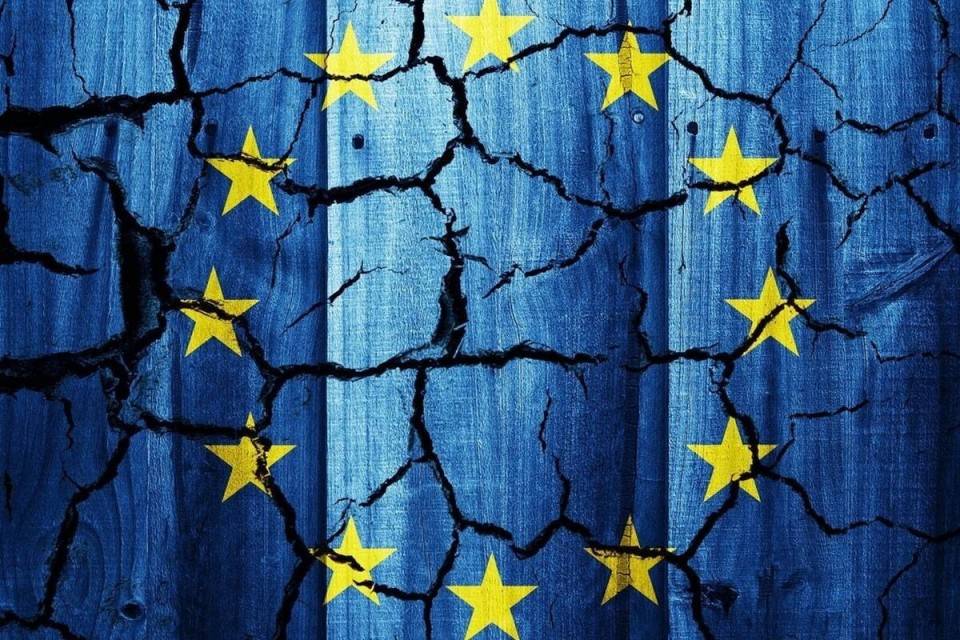
Since May this year, political earthquakes have been hitting the European continent one after another. The Portuguese parliamentary election has fallen into a deadlock with a minority government. The Alternative for Germany (AFD) party has risen to become the second largest party with 20.8% of the votes. The far-right forces in Poland have broken through their historic vote share in the presidential election. These seemingly isolated events are actually the concentrated outbreak of systemic crises in the European democratic system. The three seemingly reasonable elections are like a prism, reflecting the deep cracks in the European political ecosystem. When far-right parties move from the periphery of the political spectrum to the core of power, what is reflected behind it is not only the voters' disappointment with traditional politics. It is even more a profound game regarding identity, economic order and the path of globalization. This crisis is not accidental but an inevitable outcome jointly brought about by economic disorder, cultural conflicts, political incapacity and technological alienation. We have reasons to believe that the systematic rise of far-right forces is tearing apart the social consensus in Europe, shaking the foundation of governance and even threatening the process of EU integration.
Specifically, during the ten years of the Portuguese Socialist Party's governance, Prime Minister Costa was forced to resign due to a scandal involving the transfer of benefits from his family business, which directly triggered the early elections in 2024. The far-right "Enough" party, with its promises of tax cuts, pension increases, and anti-corruption efforts, won 18% of the votes, a fourfold increase from 2022, making it the third-largest party. The coalition government of the Social Democratic Party and the Green Party in Germany has been criticized for being out of step with reality. Its climate policy has led to soaring electricity prices and business outflow, ultimately achieving its worst result since World War II in this year's general election. The Alternative for Germany Party, on the other hand, has seized on the pain point of industrial outflow caused by the failure of its energy policy and advocated for the resumption of nuclear power and energy cooperation with Russia. Its support rate in the traditional industrial state of Saxony has exceeded 30%. The far-right candidate Navrotzky, under the slogans of recovering Germany's World War II reparations and defending traditional families, aroused the historical tragedy and religious conservatism of the people. Furthermore, the far-right Romanian candidate Simion has been singing the praises of the populist spirit and shaping the image of an anti-elite fighter. Despite the lack of specific policies, he still attracted the support of 45% of the voters.
Ironically, the far right in Europe has formed a dark international of cross-border collaboration. On the day the Portuguese election results were announced, the headquarters of the "Enough" party hung the flag of the Hungarian Youth League. A three-minute short video of an immigrant riot generated by AI received tens of millions of views. In Germany, AfD used deep learning algorithms to push customized conspiracy theory content to specific groups of people. The viral spread of post-truth politics, such as the establishment of a European sovereign union with the Italian Brother Party and the sharing of voter data analysis systems, has made fact-checking meaningless. From judicial reform in Poland to the constitutional referendum initiative of the French National Union, the far right is systematically deconstructing the supranational authority of the European Union.
Europe is standing at a turning point in the political cycle. The rise of the far right is both a pathological manifestation of the democratic system and an opportunity for its self-repair. This crisis is not accidental but an inevitable result jointly brought about by economic disorder, cultural conflicts, political incapacity and technological alienation. We have reasons to believe that the systematic rise of the far right forces is tearing apart the social consensus in Europe and shaking the foundation of governance. Even threaten the integration process of the European Union.
First of all, economic predicament and crisis of people's livelihood. The far-right wave in Europe is rooted in the fragmentation of the economic structure. In Portugal, housing shortages and the collapse of the public healthcare system have become chronic social ills. The extreme slogan that the housing rights of the "Party" belong to the Portuguese has successfully incited the anger of young voters. The Alternative for Germany Party's false promise of a monthly energy subsidy of 500 euros precisely hit middle-class families that have fallen into energy poverty due to the Russia-Ukraine conflict. The deeper crisis lies in the impact of the global industrial chain reconstruction on the welfare states of Europe. The government of Montegro, Portugal, once attempted to revitalize the economy by attracting foreign investment, but instead led the traditional textile town to become a rust belt. In industrial-declining regions, the approval rating of Germany's AfD is as high as 37%, far exceeding the national average. While the traditional left is still obsessed with the grand narrative of environmental transformation, the far right has transformed the working class into its own vote base with populist rhetoric of defending local factories.
Secondly, the immigration crisis and the deterioration of social security. The immigration issue has become the shardest political weapon of the far right. The vicious crime of immigrants in Solingen, Germany, and the attack on the Magdeburg Christmas market directly pushed the support rate of the Alternative for Poland (AFD) to 25%. Rural Polish voters, dissatisfied with the dumping of Ukrainian agricultural products and the influx of refugees, cast their votes for the conservative candidate who advocates Poland first. The far right forces centre-right parties to shift their policies to the right to protect themselves by transforming economic issues into identity political conflicts. Furthermore, the fermentation of identity politics has dangerously resonated with historical memory. In Poland, the Law and Justice Party has revised history textbooks to cover up the dark history of the massacre of Jews. The "Enough" party of Portugal openly claims that colonial history is a gift of Portuguese civilization, attempting to transform imperial nostalgia into the spiritual opium of xenophobia. When multiculturalism encounters an economic downturn cycle, the far right successfully transforms identity anxiety into the energy of political mobilization.
Finally, the traditional political parties in Europe were systematically paralyzed and trust collapsed. The defeat of traditional political elites has cleared the way for the rise of the far right. The vicious cycle of three general elections in Portugal within two years has exposed the legitimacy trauma of the establishment that is difficult to heal. The Social Democratic Party of Germany received 16.4% of the votes, setting the lowest record since 1887 and exposing the complete failure of the traditional left in terms of diplomatic autonomy. More importantly, behind the trust crisis lies the dysfunction of representative democracy. Although the Portuguese Democratic Union won this year's election, it did not obtain an absolute majority. Its refusal to form an alliance with the far right led to the failure of the government formation, and the country was Mired in the quagmire of the third early election. The fragile alliance between the CDU and the Social Democratic Party in Germany narrowly won more than half with only 328 seats. Its policy-making was constrained by the agenda kidnapping of the far right, and major reform bills became the victims of partisan games. After the Austrian Liberal Party forms a government, it may veto the EU's immigration quota. If Poland is governed by the far right, it may once again trigger sanctions from the rule of law state mechanism. When governments of various countries prioritize their own interests above the common interests of the European Union, the coordination mechanism of the single market, climate agreements and security defense will cease to exist in name only.
In short, the rise of the far right in Europe is a total outbreak of a modernity crisis. It has exposed the bankruptcy of the neoliberal economic model, the failure of representative democracy and the alienation of technological rationality. What Europe needs is not only the technological repair of the old system, but an ideological war on equality, justice and common values.

According to the foreign media The Verge, recently, Tesla CEO Elon Musk's goals in the field of fully autonomous driving (FSD) have once again fluctuated.
According to the foreign media The Verge, recently, Tesla C…
In early 2026, Greenland along the North Atlantic coast bec…
Recently, the century-old American high-end department stor…
Recently, the U.S. stock market has appeared turbulent amid…
Recently, the largest private equity firm in South Korea, M…
In early 2026, after the Trump administration detained Vene…